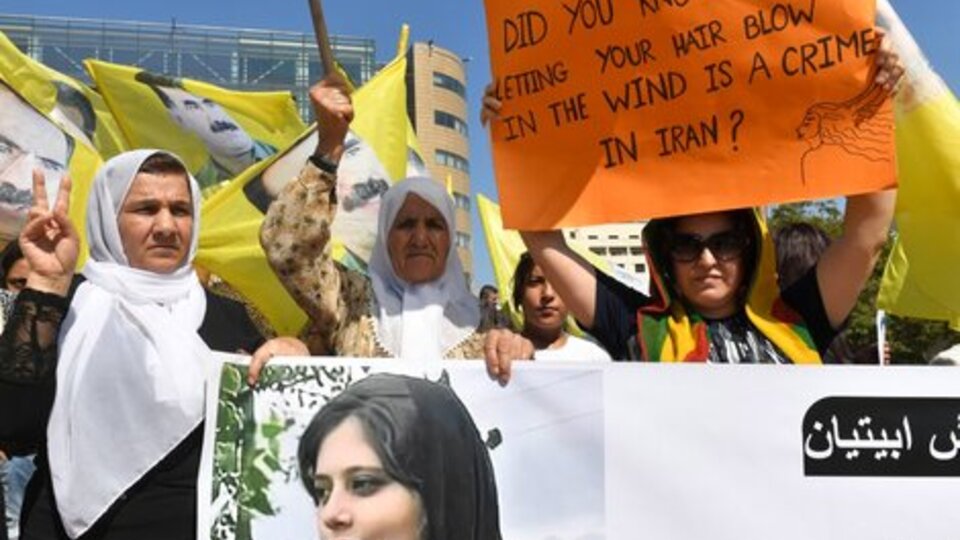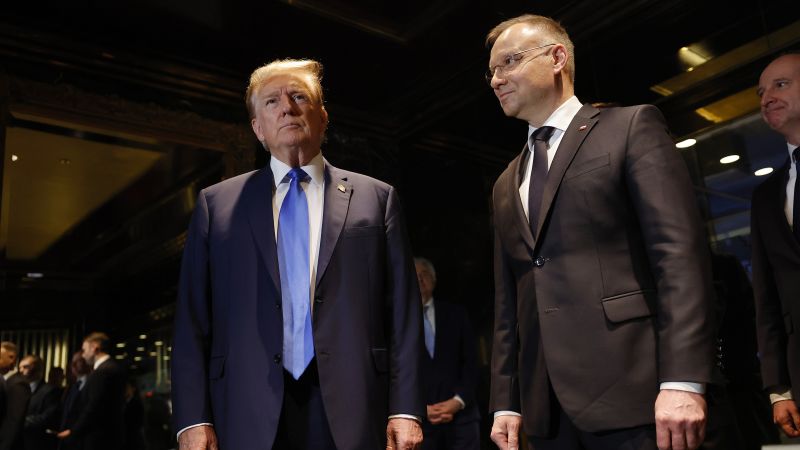
Iran declared dissolution The morale policeAfter more than two months objections Nationwide for the deaths of young people Mahza AminiHe was detained by the force on charges of violating Islamic dress code.
“The Moral Police has nothing to do with the Judiciary,” was suppressedIran’s Attorney General Mohammad Jafar Montazeri said on Saturday, Iranian news agency ISNA reported.
The abolition of moral policing is seen as a gesture to protesters who have taken to the streets in various cities across the country. AminiIt comes a day after the authorities announced They are studying whether the 1983 mandatory headscarf law needs to be changed.
President of Iran Ibrahim RaisiIt announced on Saturday that Iran’s republican and Islamic foundations are constitutionally entrenched, but that the “methods of applying the constitution” will be “flexible”.
The morale police
The The morale policeThe so-called Orientation Patrols were created under the decree of ultra-conservative President Mahmoud Ahmadinejad (2005 to 2013). “Spread Dignity and Hijab Culture”Women’s veil.
The patrols, made up of men in green and women in black chadors that cover all but the face, began operating in 2006.
Mahza Amini
On September 13, One of those patrols arrested young Mahza Amini in TehranOf Kurdish origin and 22 years old, The veil is said to be badly worn Islamic law requires women to cover their heads and breasts in the Islamic Republic of Iran.
After being arrested, The young woman collapsed at the police station and died in hospital three days later.
He was killed by nature, but by the authorities Suspicions that he may have been beaten by the authorities sparked violent protests that killed more than 300 people, according to official statistics. On the other hand, various NGOs put the death toll at 400 due to repression.
Iran has been engulfed in a wave of protests since Amini’s death on September 16. Officials confirm that he died of a medical condition, but according to his family, he died of an assault.
Since then, Women raised slogans like “Woman, Life, Freedom” and led the protests.Remove their veils and burn them.
Skepticism in networks
The announcement of the abolition of the Morale Police was met with skepticism by Iranians on social media.
One netizen expressed her fear that the structure’s functions would be taken over by another similar organization, while another recalled the strong pressure exerted by families on Iranian women.
The role of this police force has changed over the years, but it has always created divisions in the political class.
Boss A decree by moderate President Hassan Rouhani, In power between 2013 and 2021, it’s common to see women in skinny jeans and colorful headscarves.
But her successor, the ultra-conservative Ibrahim Raisi, in July called for the headscarf law to be strengthened in “all state institutions”. He declared at the time that the “enemies of Iran and Islam” wanted to “undermine the cultural and religious values of society by spreading corruption”.
Women who violate this strict dress code risk arrest by the police.
Veil law
Prosecutor Montessori announced on Saturday that “parliament and the judiciary” are studying whether to make the veil mandatory, although he did not specify whether the law would be changed.
The veil issue is still very sensitive in the Islamic Republic. On one side are conservatives who defend the 1983 law and on the other, there are progressives who say women can freely decide whether or not to wear it.
Since the start of the protest movement, more and more women have taken to the streets without headscarves, especially in the affluent north of the capital, Tehran.
Iran’s main reformist party called on September 24 to abolish the mandatory veil.

“Introvert. Thinker. Problem solver. Evil beer specialist. Prone to fits of apathy. Social media expert. Award-winning food fanatic.”

:quality(85)/cloudfront-us-east-1.images.arcpublishing.com/infobae/GH4BJBRVWBCNVLTKF4LJGJXMEY.jpg)



More Stories
Israel confirmed that it would retaliate against Iran's attack and rejected deterrence efforts by the US and other allies
Brazilian police have arrested a woman suspected of taking a dead man to a bank to collect a loan
At least 18 injured in Hezbollah attack on Israeli base near Lebanon border